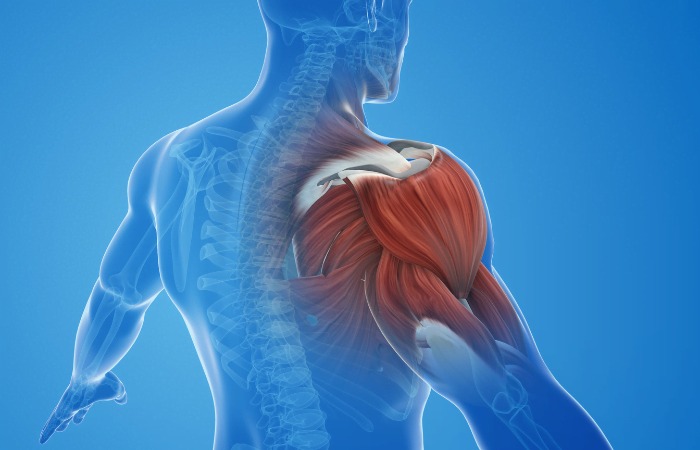
Muscle disorders refer to a range of conditions that affect muscle function, causing symptoms like weakness, pain, cramps, and stiffness. These disorders can affect both voluntary muscles (controlled by the brain) and involuntary muscles (such as those in the heart and digestive system), and can significantly impact daily activities and mobility.
1. Muscle Strains and Sprains: Caused by injury or overuse, leading to pain, swelling, and restricted movement. Treatment includes rest, ice, and physical therapy.
2. Muscular Dystrophy: A genetic condition causing progressive muscle weakness and degeneration, with treatment focusing on physical therapy and assistive devices.
3. Myopathy: Muscle weakness caused by inherited or acquired conditions. Treatment often involves medications such as steroids and physical therapy.
4. Rhabdomyolysis: Muscle breakdown due to trauma or extreme physical exertion. Immediate treatment involves hydration and addressing the underlying cause.
5. Fibromyalgia: A condition causing widespread muscle pain and fatigue. Treatment includes pain management, stress reduction, and physical therapy.
6. Amyotrophic Lateral Sclerosis (ALS): A progressive neurodegenerative disease affecting voluntary muscles, with no cure but treatments to improve quality of life.

Muscle disorders can be caused by a variety of factors, including genetic predispositions (like muscular dystrophy), infections, autoimmune diseases, injuries, nutritional deficiencies (such as vitamin D or calcium), and overuse of muscles from repetitive activities.
Common symptoms include muscle weakness, pain, cramps, fatigue, stiffness, swelling, and limited mobility. In severe cases, muscle disorders may lead to a significant reduction in daily function.
Diagnosing muscle disorders involves a thorough physical exam, medical history review, and tests like blood work, electromyography (EMG), muscle biopsies, and imaging ( MRI or CT scans ) to assess muscle damage or inflammation.
Treatment depends on the condition and can include:
1. Medications: Pain relievers, anti-inflammatory drugs, and immunosuppressive medications.
2. Physical Therapy: Exercises and stretches to improve strength, flexibility, and mobility.
3. Surgical Interventions: In severe cases, surgery may be required to repair muscle or tendon damage.
4. Lifestyle Changes: Regular exercise, proper nutrition, and stress management techniques to support muscle health and reduce symptoms.
5. Supportive Therapies: Assistive devices such as braces or wheelchairs can help with mobility and daily activities.
Early diagnosis and treatment are essential in managing muscle disorders and preventing long-term complications. Many muscle conditions can be effectively managed with appropriate care, allowing individuals to lead fulfilling lives. Diagnopein Diagnostics provides comprehensive diagnostic services, including blood tests, MRIs, and other imaging techniques, to help identify and treat muscle disorders accurately.
Contact Diagnopein Diagnostics to do any kind of MRI or CT Scans and begin your journey toward better muscle health!